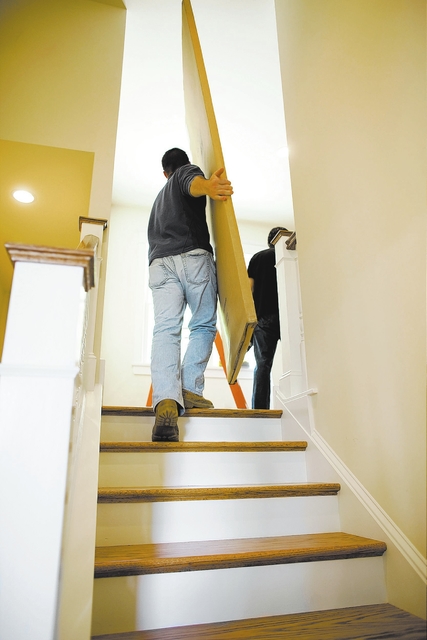Peter Guzman: Once-in-a-generation opportunity for lawmakers on housing issue
The availability of affordable homes in Las Vegas is being increasingly outpaced by demand due to population and job growth.
A hot market has driven single-family home prices up 10 percent and condo and townhome prices up 20 percent from just a year ago, while homebuilders have not been able to keep up with the high demand.
This is great for existing homeowners, but for working families hoping to buy in, it’s getting more difficult to find a house that fits the budget or is available.
Given the importance of a robust housing market, it’s disappointing that Congress continues to drag its feet on reforming Fannie Mae and Freddie Mac. These two entities secure about 60 percent of American mortgages for affordable homes and rental units. They are central to the finance system and to our nation’s affordable housing mission.
Unfortunately, the two are in limbo. After the 2008 financial meltdown that devastated our state’s housing market, Fannie and Freddie were put into “temporary” conservatorship, which means they are now run by the government.
While the Federal Housing Finance Agency (FHFA) has instituted positive change, the legal status is still a complex nightmare. What’s more, the FHFA director is term-limited in just over a year, and the market could get jittery about what’s coming next.
Congressional action is required to lock in the gains made at Fannie and Freddie. The good news is enacting such legislation offers lawmakers a once-in-a-generation opportunity to strengthen home financing and spark much needed affordable-housing construction.
What it will take is private investment. On this, nearly everyone agrees—mortgage banking experts, Republicans and Democrats in Congress, and the Trump administration.
Taxpayers should not be left holding the whole bag in affordable home loan securitization, no matter how safely Fannie and Freddie are made to behave. But with private capital involvement near zero — down from approximately 40 percent before the 2008 crash — we are about the only ones left standing behind the benchmark 30-year mortgage.
This could all change if Congress created a fair system to invite various well-vetted businesses to do the important work of guaranteeing loans for affordable home purchases and rental unit construction.
The move would inject trillions of dollars into housing. And as new stock comes online, prices will stabilize and families will find it easier to afford a home or apartment.
Of course, the system must be adequately regulated to ensure it truly promotes affordable housing and remains stable, even during severe market downturns.
Additionally, to impose essential market discipline, private mortgage backers must be made to bear the consequences of their own investment decisions, not pass their losses off on taxpayers.
These details can be worked out, however, if only our elected officials would get serious about taking action. Nevada’s Senator Dean Heller has proven himself to be a knowledgeable and committed advocate for housing finance reform.
Given his position on the Senate Banking Committee, he may be the critical voice it takes to move Congress over the finish line on a real solution.
Peter Guzman is the president of the Las Vegas Latin Chamber of Commerce.


















